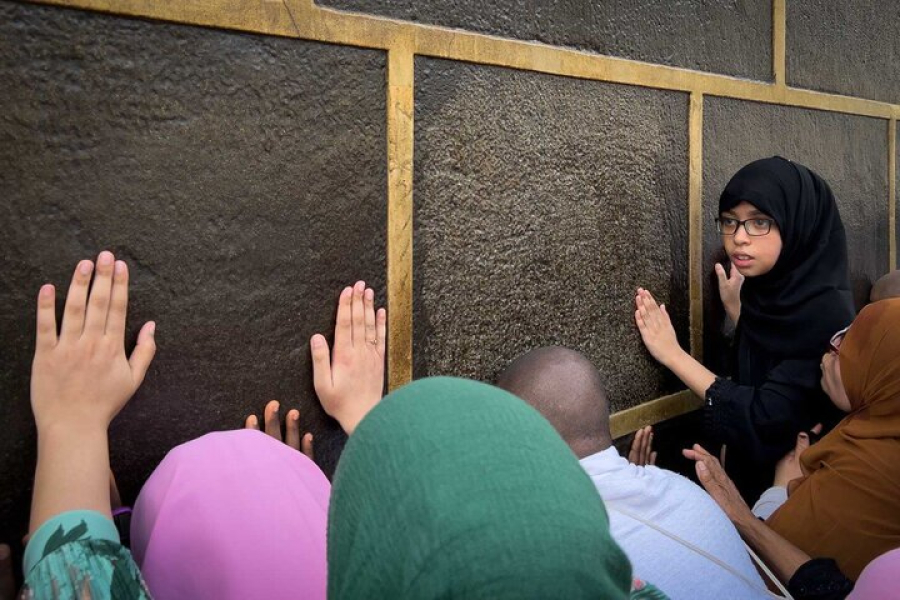Tabarruk is the religious practice of asking for blessing and a request for favor and grace from God and holy beings. The subject of tabarruk can be human beings such as prophets (peace be upon them) and Imams (peace be upon them) or things such as the Qur'an or places such as Ka'ba.
In addition to having references in the Qur'an, hadiths and the conduct of the Prophet (pbuh), tabarruk is justifiable and valid according to theological and psychological principles. According to verses of the Qur'an, tabarruk has been practiced by other prophets as well.
The word "tabarruk" is not used in the Qur'an, but other derivatives from its root are mentioned 34 times including the words, "barak-a", "barakna", "burik-a", "tabarak-a", "barakat", "barakatuh", "mubarak", "mubarak-an", and "mubaraka". In the Qur'an, The word "Mubarak" [blessed] is used to describe certain people, beings, places, and times.
Ka'ba and al-Masjid al-Haram are among blessed places. Allah says:
إِنَّ أَوَّلَ بَيْتٍ وُضِعَ لِلنَّاسِ لَلَّذِي بِبَكَّةَ مُبَارَكًا وَهُدًى لِلْعَالَمِينَ(آل عمران:96)
"Indeed the first house to be set up for mankind is the one at Bakkah, blessed and guidance for all
nations."
As you see many people go Mecca for hajj or Umra and then they go to touch Kabba and asking Allah for belessing or many people from different country touch Hajar Alaswad.
The Glorious Qur'an has referred to tabarruk in some verses and has not mentioned it either prohibited or permissible. Moreover, some these cases are practiced either by prophets themselves or at their presence which clearly shows its permissibility.
Prophet Jacob (یعقوب) sought tabarruk from Joseph's (یوسف) shirt which is mentioned in the Qur'an.
ذْهَبُوا بِقَمِيصِي هَٰذَا فَأَلْقُوهُ عَلَىٰ وَجْهِ أَبِي يَأْتِ بَصِيرًا وَأْتُونِي بِأَهْلِكُمْ أَجْمَعِينَ(یوسف: 93)
When Joseph (a) told his brothers to put his shirt on the eyes of their father, "Take this shirt of mine, and cast it upon my father's face; he will regain his sight…" (Qur'an 12:93) then God's mercy flew from Joseph's shirt to the eyes of Jacob (pbuh) and he sought tabarruk from it and regained his sight.
Conduct of the Prophet (pbuh) is a support for permissibility of seeking tabarruk. Some hadiths suggest that he used to encourage his companions to seek tabarruk from him.
For example, On the night of Lady Fatima's (pbuh) marriage, the noble Prophet (pbuh) performed wudu and sprinkled the rest of the water of his wudu on the faces of Lady Fatima (pbuh) and 'Ali (pbuh) and asked God to bless them and their progeny.(Qundūzī, Yanābīʿ al-mawadat li-dhi l-qurbā, p. 174-175, 196-197)
There are also reports about blessing the water of the well of Hudaybiyya by remnants of his drinking water. Aḥmad b. Ḥanbal, Musnad, vol. 10, p. 391.
The people who say that it is Shirk/Kufr to believe in Taburruk should have proof from the either the Qur’an or Sunnah. There is no Hadith that proves that to get Tabarruk from the pious is forbidden.


















